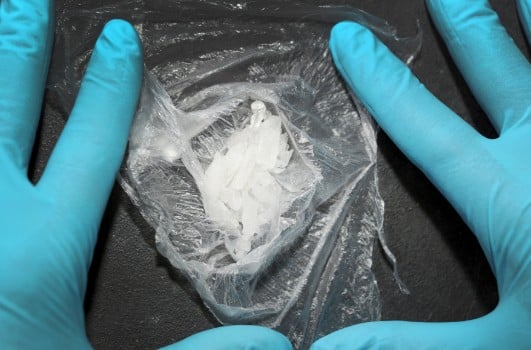Many industries have been hit hard in the coronavirus crisis. But it appears drug dealers adapted quickly during the lockdown, even while doing home office.
Move to online and delivery
Presenting his agency's annual report on drug criminality on Tuesday, BKA boss Holger Münch said that dealers had quickly adapted to the coronavirus by offering more service online.
Narcotics purchased via the internet and delivered by post – often to a packet shop – had increased during the pandemic.
Smuggling by air and sea continued at a constant level throughout the crisis in comparison with recent years, he said.
SEE ALSO: 10 things you should know about illegal drug use in Germany
'Cocaine not elite drug anymore'
Münch made the comments during the presentation of the annual drug report, which showed an increase in drug criminality for the ninth year in a row last year.
Criminality in connection with cocaine rose most sharply, increasing by 12 percent. “We've come to the conclusion that this isn’t an elite drug anymore,'' said Münch.
The largest quantity of cocaine ever seized in Germany was discovered by customs in July 2019 during a routine check in the port of Hamburg.
A container of soybeans, which was to be transported from Uruguay via Hamburg to Belgium, contained 4.5 tonnes of cocaine. The estimated street value was almost one billion euros.
Drug use increasing
Meanwhile, 31 illegal drug labs were busted nationwide in 2019, a 63 percent increase on 2018.
In total, the number of drug offences registered in 2019 rose by 2.6 percent compared to the previous year to 359,747. By far the most offences were related to cannabis.
“Instead of wasting resources on prosecuting users, the federal and state governments should take targeted action against organized drug crime and the black market,” said FDP drug policy expert Wieland Schinnenburg.
Schinnenburg proposed starting the controlled distribution of cannabis to adults, which would free up police resources to go after more serious crimes.
Münch said that he was not against conducting a debate on liberalization. But he cautioned that he had not seen evidence to suggest either that legalization leads to lower consumption or that it weakens the power of organized crime networks.



 Please whitelist us to continue reading.
Please whitelist us to continue reading.
Member comments